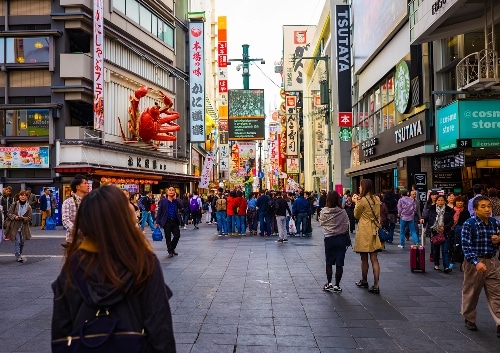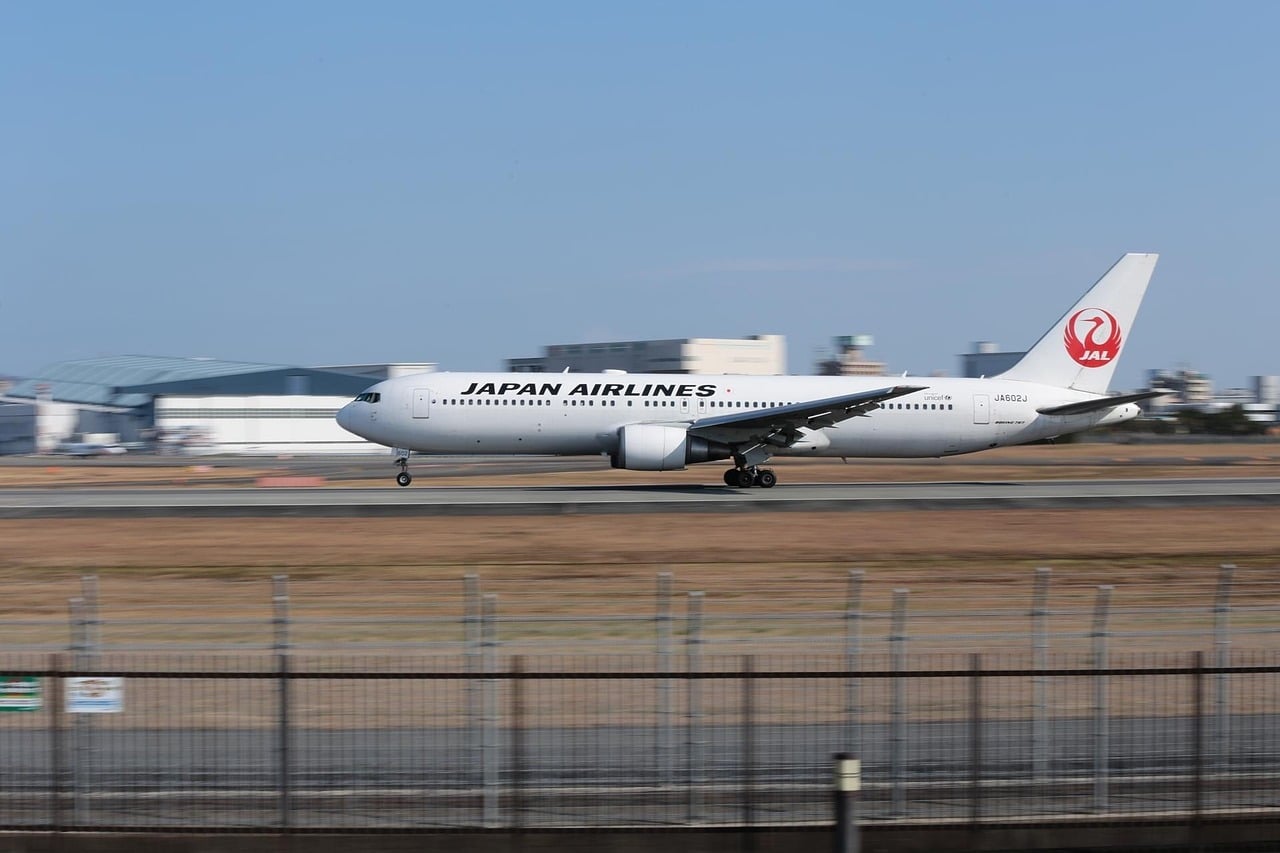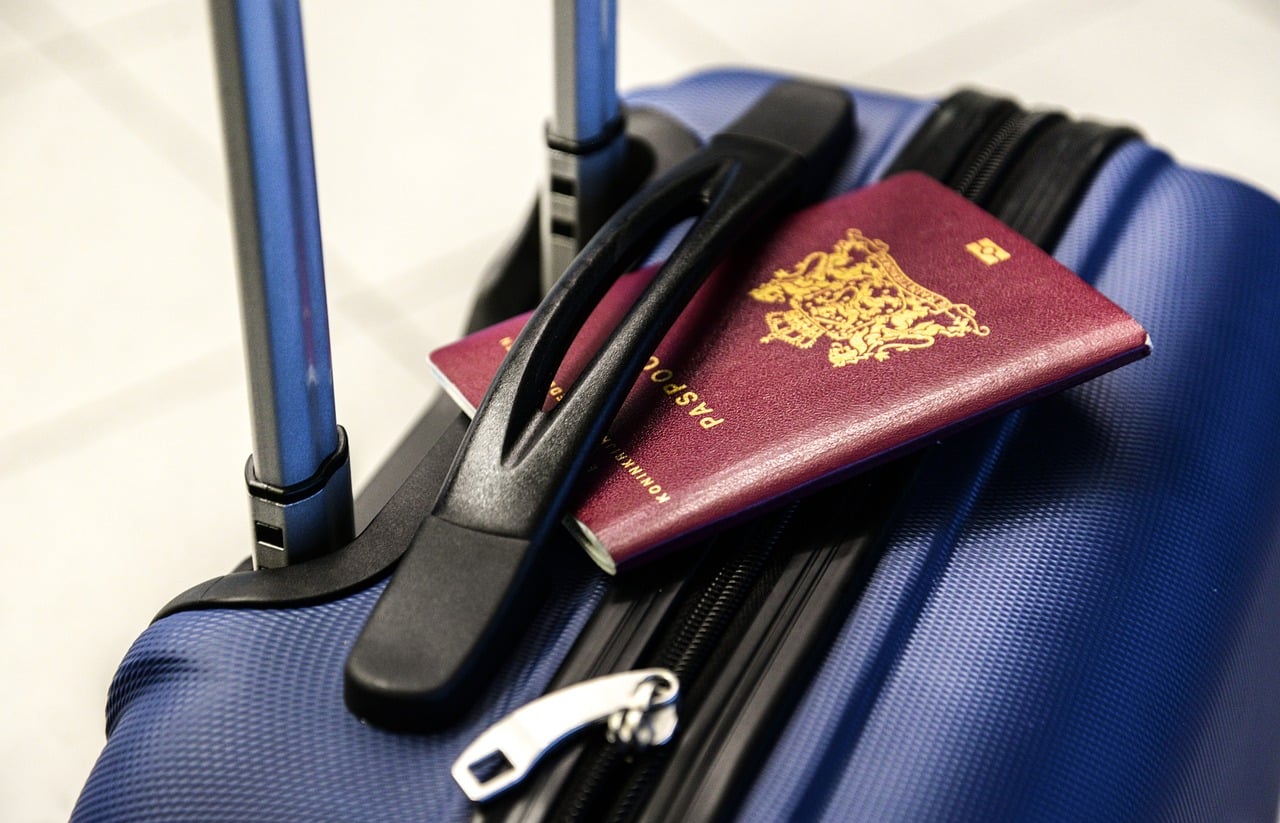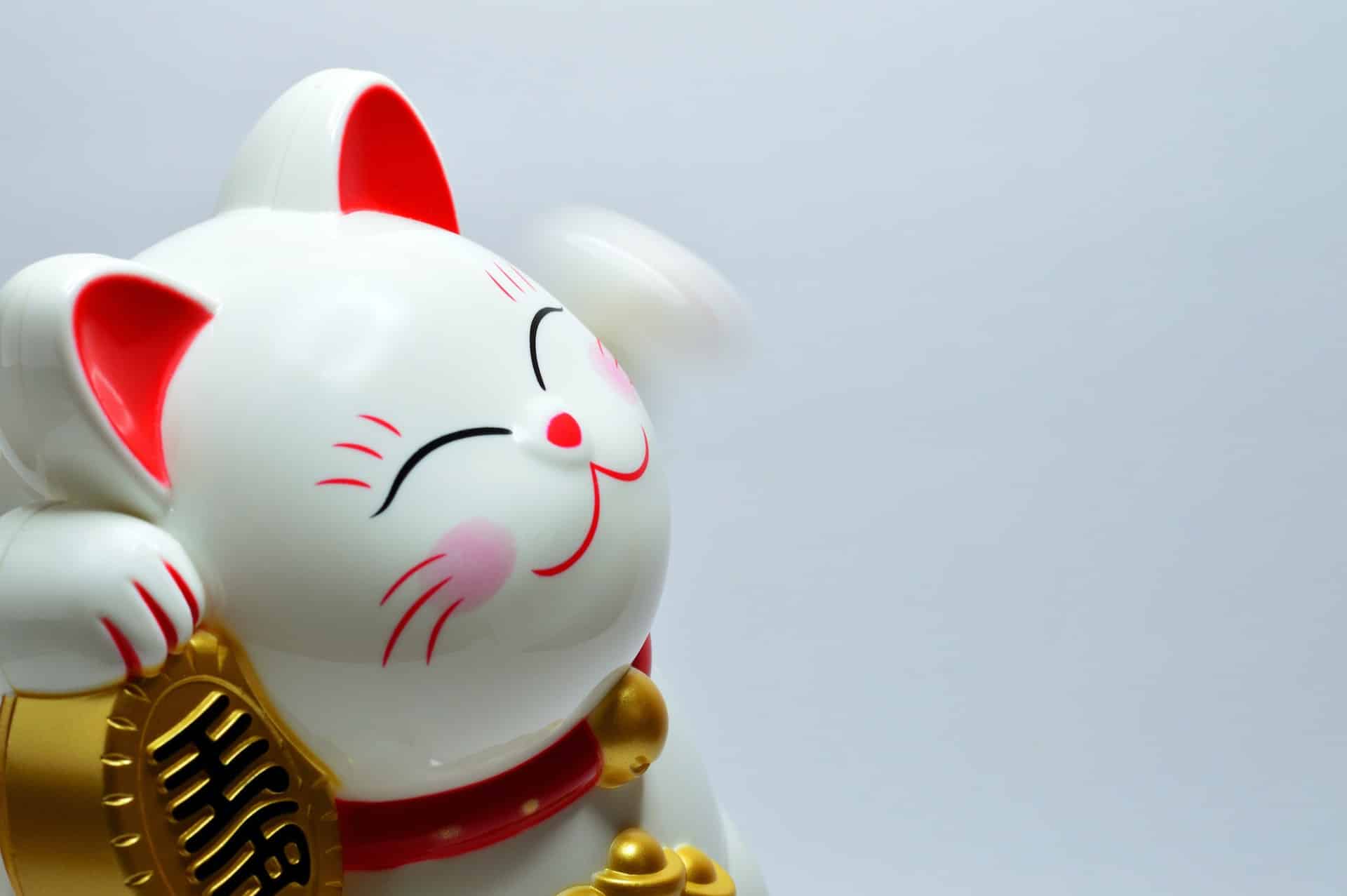
Japanese Phrases for Tourists: 116 Essential Phrases for Your Japanese Vacation
Before I traveled to Japan for the first time, everyone assured me that “Everybody speaks English there,” and I wouldn’t need to use Japanese at all.
But in reality, most of the people I encountered in Japan had a fairly elementary level of spoken English.
For a better travel experience, you should learn some basic travel words and phrases in Japanese.
Contents
- Greetings and Basic Japanese Phrases
- Airport Phrases You’ll Hear
- Airport Phrases You’ll Use
- Asking for Directions
- Receiving Directions
- Transportation Phrases
- Hotel Phrases
- Eating and Drinking in Japan: What You’ll Hear
- Eating and Drinking in Japan: What You’ll Say
- Shopping in Japan: Phrases You’ll Hear
- Shopping Phrases You’ll Use
- Number of Items in Japanese
- Tips to Use Your New Phrases: Politeness and Pronunciation
- How to Study These Japanese Travel Phrases
Download: This blog post is available as a convenient and portable PDF that you can take anywhere. Click here to get a copy. (Download)
Greetings and Basic Japanese Phrases
I’ll provide the hiragana, kanji and romaji for each word, and will explain the use of certain Japanese phrases for tourists in context.
1. Hello — konnichiwa
こんにちは2. Good morning — ohayou gozaimasu
おはようございます3. Nice to meet you — hajimemashite
はじめまして4. Goodbye — sayounara
さようなら5. Please — onegaishimasu
お願いします6. Thank you — arigatou gozaimasu
ありがとうございます7. You’re welcome — dou itashimashite
どういたしまして8. Excuse me/Sorry — sumimasen
すみませんThis is definitely one to memorize. I say すみません at least 30 times a day in Japan. It’s a magical word.
It helps you push through a crowd, get attention from a waiter, ask for directions or be excused for basically any touristy blunder.
Simply saying すみません and gesturing is a pretty good way to express that you need help, but don’t speak Japanese.
9. Yes — hai
はい10. No — iie
いいえ11. Let’s Eat/ “Bon Appetit” — itadakimasu
いただきますSimilar to the French “bon appetit”, this is what Japanese people say before they eat. It doesn’t have a literal translation in English, but it’s a way to give thanks for a meal.
You should also remember this phrase’s pair: ごちそうさま (gochisousama) or ごちそうさまでした (gochisousama deshita). These phrases are used at the end of a meal and translate as “What a good meal,” or “Thank you for the meal,” the latter being the more polite form.
12. I don’t understand — wakarimasen
分かりません13. I don’t speak Japanese — nihongo o hanashimasen
日本語を話しません14. Do you speak English? — eigo o hanashimasu ka?
英語を話しますか?15. Can you please repeat that? — mou ichido itte kudasai
もう一度言ってください16. Can you please speak slowly? — yukkuri hanashite kudasai
ゆっくり話してください17. What is your name? — onamae wa nan desu ka?
お名前は何ですか?18. My name is… — watashi no namae wa…
私の名前は…19. What is this? — kore wa nan desu ka?
これは何ですか?これ and それ literally just mean “this” and “that.”
20. How much does this cost? — kore wa ikura desu ka?
これはいくらですか?If you’re pointing at something that you can’t reach, you say それは いくらですか?
21. Can you please help me? — tasukete moraemasuka?
助けてもらえますか?Airport Phrases You’ll Hear
Japanese airports aren’t just places to land: they’re an entire cultural showcase on their own. For example, at the Narita Airport, you’ll see pet hotels, gacha machines, the (in)famous smart toilets and even a Pokémon Store!
22. Welcome, please come in — yokoso, o-hairi kudasai
ようこそ、お入りください23. Please show your ticket — chiketto o misete kudasai
チケットを見せてください24. Please show your passport — pasupooto o misete kudasai
パスポートを見せてください25. What is your reservation name? — yoyaku-mei wa nan desu ka?
予約名は何ですか?26. The flight is delayed — furaito chien shiteimasu
フライト遅延しています27. The flight has been canceled — furaito kyanseru saremashita
フライトキャンセルされました28. Baggage claim is this way — baggeji kureimu wa kochira desu
バッゲージクレームはこちらです29. We have arrived at … Airport — … kuko ni tochaku shimashita
… 空港に到着しました30. We will depart for … Airport — … kuko e shuppatsu shimasu
… 空港へ出発します31. There is a delay in the flight — furaito ni okure ga arimasu
フライトに遅れがあります32. There are restrictions on carry-on baggage — kinai mochikomi no nimotsu niwa seigen ga arimasu
機内持ち込みの荷物には制限がありますAirport Phrases You’ll Use
33. Please tell me how to get to the airport — kuko e no ikikata o oshiete kudasai
空港への行き方を教えてください34. Is this a departure flight? — korewa shuppatsu-bin desu ka?
これは出発便ですか?35. Is this an arrival flight? — korewa tochaku-bin desu ka?
これは到着便ですか?36. Where is the boarding gate? — tojyo-guchi wa doko desu ka?
搭乗口はどこですか?37. I’ll check my baggage — tenimotsu azukemasu
手荷物預けます38. Please call a taxi — takushii o yonde kudasai
タクシーを呼んでください39. I’d like to rent a car — rentakaa o karitai desu
レンタカーを借りたいです40. Where is the gate for the connecting flight? — noritsugi-bin no geeto wa doko desu ka?
乗り継ぎ便のゲートはどこですか?Asking for Directions
Asking for directions is sort of daunting, especially when the person answers in a whole stream of fast-paced Japanese.
But you’ll find that Japan is one of the best places to be a lost and hopeless tourist. There’s always someone nearby who’s more than happy to help. I’ve even had people take time out of their days to walk me where I needed to go!
Simply say wherever it is that you want to go followed by どこですか? — doko desu ka? (Where is …?).
41. I want to go… (here) — (koko) ni ikitai desu
(ここ) に行きたいですSay ここ if you have an address written down or a point marked on a map of where you want to go.
If you know the name or address of the place where you want to go, simply say the place name followed by に行きたいです . For example, if you want to go to Shinjuku station, you simply say 新宿駅に行きたいです — Shinjuku eki ni ikitai desu. (I want to go to Shinjuku station.)
42. Where is the…? — …wa doko desu ka?
… はどこですか?43. Can you please show me where we are on the map? — watashitachi ga doko ni iru no ka, chizu de oshiete kudasai
私達がどこにいるのか、地図で教えてくださいThis might seem like an odd question (and a bit of a mouthful), but it can be a lot more helpful than asking for directions from someone who doesn’t know English.
44. Is it near? — chikai desu ka?
近いですか?45. Is it far? — tooi desu ka?
遠いですか?Receiving Directions
46. Go straight ahead — massugu itte kudasai
まっすぐ行ってください47. Turn left — hidari ni magatte kudasai
左に曲がってください48. Turn right — migi ni magatte kudasai
右に曲がってくださいTransportation Phrases
In Japan, public transportation is how most people get around. If you’re not used to taking the bus, train or anything similar, better keep the following phrases handy!
49. Take me to this address, please — kono jyusho made tsureteitte kudasai
この住所まで連れて行ってください50. What is the fare? — ryoukin wa ikura desu ka?
料金はいくらですか?51. Stop here, please — koko de tomatte kudasai
ここで止まってください52. Does this bus go to (street name)? — kono basu wa … ni ikimasu ka?
このバスは … に行きますか?53. Does that train stop at …? — sono denshya wa … de tomarimasu ka?
その電車は…で止まりますか54. A map, please — chizu o onegai shimasu
地図をお願いします55. This hotel — kono hoteru
このホテル56. The subway — chikatetsu
地下鉄57. The train station — denshya no eki
電車の駅58. The bus stop — basutei
バス停59. The taxi stand — takushii noriba
タクシー乗り場60. The exit — deguchi
出口61. The entrance — iriguchi
入口62. The bathroom — toire
トイレHotel Phrases
Like other service-oriented businesses in the country, Japanese hotels subscribe to the concept of omotenashi, which roughly translates to pouring your whole heart into service. That means you can expect employees at Japanese hotels to go above and beyond when it comes to making you feel welcome.
63. I have a reservation under the name of … — … no yoyaku o shiteimasu
…の予約をしています64. I would like to check-in — chekkuin shitai desu
チェックインしたいです65. What time is check-in? — chekkuin wa nanji desu ka?
チェックインは何時ですか?66. Is breakfast included? — choshoku wa fukumareteimasu ka?
朝食は含まれていますか?67. Where is my room? — watashi no heya wa doko desu ka?
私の部屋はどこですか?68. Please give me a wake-up call at … — … ni weikuappu kooru onegaishimasu.
… にウェイクアップコールお願いします69. Where is the nearest convenience store? — ichiban chikai konbini wa doko desu ka?
一番近いコンビニはどこですか?70. Can you recommend a good restaurant nearby? — chikaku no oishii resutoran o shokaishite moraemasu ka?
近くの美味しいレストランを紹介してもらえますか?71. What time is check-out? — chekkuauto no jikan wa nanji desu ka?
チェックアウトの時間は何時ですか?72. Where can I store my luggage? — nimotsu wa dokoni azukeraremasu ka?
荷物はどこに預けられますか?73. Is there Wi-Fi in the hotel? — hoteru ni wa wai-fai ga arimasu ka?
ホテルにはワイファイがありますか?74. Where is the nearest ATM? — ichi-ban chikai ATM wa doko desu ka?
一番近いATMはどこですか?75. I’d like to have some extra towels, please — yobun no taoru o kudasai.
余分のタオルをください。76. What time is breakfast served? — choshoku wa nanji kara desu ka?
朝食は何時からですか?77. Excuse me, I need an iron and ironing board — sumimasen, airon to iron-dai ga hitsuyo desu.
すみません、アイロンとアイロン台が必要です。Eating and Drinking in Japan: What You’ll Hear
Like Japanese hotels, Japanese restaurants also practice omotenashi. Here are some of the more common phrases you’ll hear from Japanese restaurant staff.
78. Welcome — Irasshaimase
いらっしゃいませ79. How many people in your party? — Nan mei sama desu ka?
何名様ですか?80. This way, please — Kochira e douzo
こちらへどうぞ81. Certainly (in response to your order) — Kashikomarimashita
かしこまりました82. Thank you for waiting — Omatase itashimashita
お待たせいたしましたEating and Drinking in Japan: What You’ll Say
The best restaurants in Japan are the authentic ones that don’t cater to tourists. But these are also the places that have no English menus, and sometimes no English-speaking waitstaff.
Luckily, it’s very common for Japanese menus to feature photos of all the dishes. And many places have models of their dishes on display, so you likely won’t be going in completely blind.
Use these phrases, and you should be in and out of a restaurant without too many hiccups.
83. A table for two, please — futari you no teeburu o onegai shimasu
二人 用のテーブルをお願いしますYou can also replace futari with the number of people who you need to have seated:
If you’re confused about Japanese numbers and counters, don’t despair. You can just do as the locals do and indicate the number of diners by holding up your fingers.
84. The menu, please — menyu o onegai shimasu
メニューをお願いします85. What are today’s recommendations? — kyo no osusume wa?
今日のお勧めは?If everything on the menu looks appetizing and you’re not quite sure what to order, use this phrase.
86. Water, please — mizu o onegai shimasu
水をお願いします87. Two beers, please — biiru o nihai onegai shimasu
ビールを二杯お願いします88. Can I please have (one, two) of this? — kore o (hitotsu, futatsu) onegai でdekimasu?
これを (一つ、二つ) お願いできますか?89. Do you have a vegetarian dish? — bejitarian youno ryouri ga arimasu ka?
ベジタリアン用の料理がありますか?I’ve traveled in Japan with vegetarians twice, and this question usually draws quite strange looks. Vegetarianism basically doesn’t exist in Japan, although Japanese cuisine is generally quite vegetarian-friendly.
It might work better to say これは肉ですか? — kore wa niku desu ka?, to say “is this meat?” Follow up with 私は肉を食べません — watashi wa niku o tabemasen, which means “I don’t eat meat,” if you want to make yourself understood.
90. Is … in it? — … wa haitte imasu ka?
…は入っていますか?Alternatively, you can also ask if specific ingredients are included in your food, so you’ll know whether you should order it or not.
91. That’s okay — daijyoubu desu
大丈夫ですYou can also use this expression to ask someone if they’re okay. Just add the question particle ka to the end: 大丈夫ですか ? — daijyoubu desu ka?
92. The check, please — okanjyou o onegai shimasu
お勘定をお願いしますSay the above, or you can do as the locals do and catch the waiter’s eye (with a smile!) and draw a clockwise circle in the air with your index finger pointing towards the roof.
In some restaurants, you need to bring the check to the cash register which is usually located by the restaurant’s doorway.
93. Cheers! — kanpai!
乾杯!94. It was delicious — oishikatta desu
おいしかったです95. Water — mizu
水96. Wine — wain
ワイン97. Beer — biiru
ビール98. Tea — ochya
お茶99. Coffee — coohii
コーヒー100. Juice — juusu
ジュース101. Meat — niku
肉102. Chicken — toriniku
鶏肉103. Pork — butaniku
豚肉104. Beef — gyuniku
牛肉105. Fish — sakana
魚106. Rice — gohan
ご飯107. Bread — pan
パン108. Vegetables — yasai
野菜109. Fruit — kudamono
果物Shopping in Japan: Phrases You’ll Hear
When you’re met with cries of いらっしゃいませ!, you’re not really expected to respond to this greeting. As for me, I just smile and say こんにちは which means, of course, “hello.”
Walking into a department store is particularly surreal, with each assistant taking cues from the others, so that every time a customer walks in, いらっしゃいませ bounces around the entire floor.
110. Are you looking for something? — nani ka osagashi desu ka?
何かお探しですか?111. Is that all? — ijyou de yoroshii desu ka?
以上でよろしいですか?112. Here it is / Here you go — hai, douzo
はい、どうぞShopping Phrases You’ll Use
113. I would like this — kore o onegai shimasu
これをお願いします114. I would like one of those — sore o hitotsu onegai shimasu
それを一つお願いします115. I would like to pay in cash — genkin de onegai shimasu
現金でお願いします116. I would like to pay by credit card — kurejitto kaado de onegai shimasu
クレジットカードでお願いしますNumber of Items in Japanese
The only real challenge with ordering meals in Japanese is the use of counters.
We have counters in English, too (for example “sheets” of paper, “glasses” of water, “blades” of grass), but not as many or as complicated as in Japanese.
Luckily Japanese has a “universal” counter, つ (tsu), which you can use for anything, including food.
The numbers one to four as つ counters are pronounced 一つ (hitotsu)、 二つ (futatsu)、 三つ (mittsu) and 四つ (yottsu). You can use this counter for drinks too, and the waiter will understand you.
However, if you want to be a little more impressive, you can use the drinks counter: 杯 (hai/bai/pai depending on the number used with it). The numbers one to four using this counter are 一杯 (ippai)、 二杯 (nihai)、 三杯 (sanbai) and 四杯 (yonhai).
If you want to learn more about counters, this post explains them in more detail.
Tips to Use Your New Phrases: Politeness and Pronunciation
All the examples I’ve given are in the polite, neutral form of speech. You basically can’t go wrong speaking this way in Japan, so you don’t need to worry about making any social faux pas!
Some notes on pronunciation:
- Avoid turning vowels into dipthongs (vowel sounds that run into each other, like the oi in “coin”). Pronounce each vowel on its own even when there are two vowels next to each other. Onegai is read as “o-ne-ga-i,” not “o-ne-gai”
- The sound ou and repeated vowels like ii and ee are exceptions: they show an elongation of the sound. Ohayou is read as “o-ha-yoh,” not “o-ha-yo-u.”
- Treat ん (n) as its own syllable. Konnichiwa is read “ko-n-ni-chi-wa,” not “ko-ni-chi-wa.” It’s subtle, but it makes a difference!
- Repeated consonants are pronounced. For an example of how to do this, just read the word “bookkeeper” out loud.
- The small kana っ like in いって signify a break between the sounds—”it-te,” not “i-te.”
- Small y- kana like ゃ in おちゃ add the y sound to the preceding syllable—”o-chya,” not “o-chi-a.”
- は (ha) as a particle is pronounced wa, and を (wo) as a particle is pronounced o.
How to Study These Japanese Travel Phrases
The beauty of Japanese is that it’s an extremely phonetic language, so if you say the words exactly as you read them, you can’t really get them wrong.
Having said that, people will probably struggle to understand you if you speak in a strong non-Japanese accent, so it might pay to listen to some spoken Japanese before you start practicing pronunciation.
The most important thing to remember is that, unlike English speakers, Japanese speakers don’t put emphasis on the second or third syllable of a word—there’s some emphasis on the first syllable, but it’s subtle.
Some ways that you can listen to Japanese being spoken is by watching Japanese films, television programs, anime or YouTube clips.
The Japanese language program FluentU has a little bit of everything in the media, with interactive subtitles and customizable flashcards for a well-rounded learning experience.
Maybe this seems like a lot, but learning Japanese travel phrases for tourists will make your trip run more smoothly, and the people you meet will appreciate your effort.
Speaking the local language tends to get people on your side. They’re less likely to try to rip you off, and often will want to become your best friend.
I like to make little phrasebooks for myself when I travel, so I can have these Japanese travel phrases and vocabulary always on hand.
I’ve been treated to tea and dinner in people’s homes, and once was driven around a city with a personal guide/impromptu friend all day, just because I struck up conversations in the local language.
Don’t be scared! Give it a try!
Download: This blog post is available as a convenient and portable PDF that you can take anywhere. Click here to get a copy. (Download)













